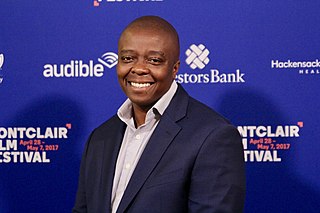Top 48 Quotes & Sayings by Yance Ford
Explore popular quotes and sayings by an American director Yance Ford.
Last updated on April 14, 2025.
Film festivals are usually unpleasant experiences on some level. The lines are ridiculous, the crowds are ridiculous, or the schedules are impossibly arranged: 'You say that there's a film you really want to see? Try the 8 A.M. show! Oh, it's too bad you didn't get to bed until 2 A.M. the night before.'
Everyone in the street where I grew up was given the same message: You can be anything; you can do anything. That wasn't extraordinary; that was ordinary for us. My folks didn't believe in black exceptionalism. There's nothing exceptional about 'You can have that, too' - except when it comes to justice. You can't have that.
I hope that audiences understand that there is a precariousness to black lives in this country that we need to address, that there has always been a precariousness to black lives in this country that we need to address. In fact, our country is built on the precariousness of black lives, the disposability of black lives.
'Strong Island' has been a labor of love and dedication on the part of so many people, that it's just an incredible recognition to be honored. And to be the first trans director - and, I believe, the first African-American trans director - to be nominated for an Academy Award is incredibly, incredibly special to me.
It would have been tough for anyone to adapt 'Push' - an amazing but wrenching novel by Sapphire - for the screen, and I think director Lee Daniels made interesting choices, particularly with Precious' fantasies. In my view, some of them work and some do not, but they are definitely provocative directorial choices.






















